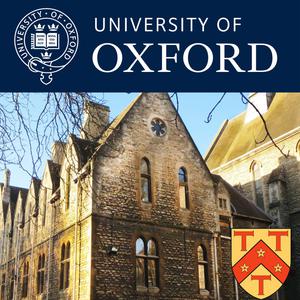
Asian Studies Centre
Oxford University
The Asian Studies Centre was founded in 1982 at St Antony's College and is primarily a co-ordinating organisation which exists to bring together specialists from a wide variety of different disciplines. Geographically, the Centre predominantly covers South, Southeast and East Asia. The Asian Studies Centre works closely with scholars in the Oriental Institute, the Oxford China Centre, the Contemporary South Asian Studies Programme and the Nissan Institute of Japanese Studies (in premises at St Antony's). The Asian Studies Centre is host to the Taiwan Studies Programme, Modern Burmese Studies Programme, the South Asian History Seminar Series and the Southeast Asian Studies Seminar Series.
- 1 hour 25 minutesInterview with Joe Cribb on the British Museum coin collection by Shreya GuptaThis interview discusses Joe's interest and approach in studying and curating coins, as well as the research being undertaken on the British Museum's South Asian coin collection. In this interview Joe talks about his interest in Asian numismatics and his initial work at the British Museum. He discusses the idea and curation of the British Museum's HSBC Money gallery. We discuss his collaboration projects with scholars from South Asia and the access that different audiences have to these collections.4 December 2024, 1:10 pm
- 42 minutes 10 secondsThe Trial that Shook Britain: How a Court Martial Hastened Acceptance of Indian IndependenceBook talk with Ashis Ray The Indian National Army (INA) trials of 1945–46 have generally been given short shrift by historians in their cataloguing of the Indian freedom movement. This book examines to what extent the trials had an impact on the final phase of India’s quest for independence. In so doing, it unveils that, while the Indian National Congress’s extended odyssey to win independence was essentially about a passive push-back, at a critical juncture of its campaign to extinguish British colonialism in India, it applauded and capitalised on the INA’s use of force. The central, explosive narrative is about Britain holding a court martial of three officers of the INA – Shah Nawaz Khan, Prem Sahgal and Gurbaksh Dhillon – convicting them, before a dramatic turn in events. The material unearthed by the book throws new light on a decisive juncture leading to the transfer of power in India. It will be indispensable for researchers interested in South Asia, especially the Indian freedom movement. It will be invaluable for students of history, colonialism, military studies, politics in pre-Partition India and law. Ashis Ray has been a foreign correspondent since 1977, broadcasting on BBC, CNN and ITN and writing for Ananda Bazar Group, The Times of India, The Tribune, The Hindu, Hindustan Times, The Guardian, The Observer, The Times, Financial Times and Nikkei Asia, among other publications. He was CNN’s founding South Asia bureau chief before becoming the network’s editor-at-large. He has been elected president of Indian Journalists’ Association (Europe) for several terms. In 1982, the Commonwealth Institute selected him among 10 ‘eminent Indians’ in Britain. In 1995, he was conferred a National Press Award in India. He was made an academic visitor by St Antony’s College, Oxford for 2021–22. He intends to continue in academia. The Trial that Shook Britain is his fourth book.4 December 2024, 1:08 pm
- 41 minutesDr Shailendra Bhandare on the Ashmolean Museum’s South Asian coin collectionsShreya Gupta interviews Dr Shailendra Bhandare, Curator of South Asian and Far-eastern Coins and Paper Money at the Ashmolean Museum23 August 2024, 2:48 pm
- 51 minutes 56 secondsJan Lingen, President of the Royal Dutch Numismatic Society, on collecting South Asian CoinsShreya Gupta interviews Indian coin expert Jan Lingen on his collection. In this interview Jan Lingen recounts his story of coming to India in his architectural role and developing an interest in Indian coins and studying Indian languages. He talks about the people he met with and worked with on his coin collecting journey and his continuing work with Indian coins in the Netherlands.20 August 2024, 10:10 am
- 1 hour 26 minutesInterview with Robert Bracey on South Asian Coin Collections in the British Museum by Shreya GuptaThis interview discusses the afterlives of coin collections from South Asia held in UK museums today. In this interview, Robert Bracey speaks about his past and ongoing work at the British Museum as the current Curator of Asian Numismatics. He talks about some of the research being conducted on the museum’s South Asian coins, particularly on the Kushan coin collection. The speakers discuss the services provided for visitors and scholars to the British Museum including the Study Room and Collections Online, and attempt to understand the lives of these coins inside the British Museum after they have made their journey from South Asia to the UK.31 July 2024, 12:55 pm
- 37 minutes 39 secondsInterview with Dr Paul Stevens on collecting Indian coins by Shreya GuptaThis interview discusses Paul Steven’s journey of collecting and researching Indian coins In this interview Dr Paul Stevens recounts his story of getting interested in collecting Indian coins and his journey of building his collection. He talks about the books he has authored, 'The Coins of the English East India Company: Presidency Series - A Catalogue and Pricelist' (Spink, 2017), and with Randy Weir, 'The Uniform Coinage of India 1835 to 1947: A Catalogue and Pricelist' (Spink, 2012). Finally, he discusses his idea and motivation and current work in building an online database of Indian coins, http://psindiancoins.com31 July 2024, 12:51 pm
- 31 minutes 11 secondsPakistan & India: Common Origins, Divergent TrajectoriesPervez Hoodbhoy seminar given as part of the Modern South Asian Seminar series in October 2023 What had been a relatively small gap in 1947 between Pakistan and India is turning into an ever widening chasm. Given the common origins of these two countries what essential differences led to the present situation? Or were the trajectories predetermined? After discussing historical similarities and differences, I will explore whether Pakistan can now choose a different future for itself. Pervez Hoodbhoy taught physics at Quaid-e-Azam University in Islamabad (1973–2021) as well as other Pakistani universities for nearly five decades. He was visiting professor at MIT, Carnegie Mellon University, and the University of Maryland, and a post-doctoral research fellow at the University of Washington. His book “Islam and Science – Religious Orthodoxy and the Battle for Rationality” was translated into 8 languages.26 October 2023, 11:51 am
- 51 minutesAlong The Path To Gandhi's NeighborAjay Skaria - University of Minnesota, speaks at the Oxford South Asian Intellectual History Seminar on 1 May 2023. The figures of the neighbor and friend are ubiquitous in Gandhi’s writings. While he himself assumes he is only reaffirming old figures, something truly radical happens in his writings (as in those of his sharpest critic, Ambedkar). Both write at a time when a modern commandment, so to speak, exemplified in the categorical imperative, is displacing the Biblical and other analogous commandments. It is in order to criticize this new commandment that both affirm instead old commandments around neighbor and friend. But in their very questioning, they also borrow from the new commandment a key element—the injunction to equality. By doing so, they inaugurate a new politics—a politics that could be described as democratic neighborliness or political friendship. This talk will trace the conceptual prehistory of this new politics. Ajay Skaria is Professor in the Department of History and Institute for Global Studies at the University of Minnesota. Since the 2000s, his research interests have included twentieth century Indian intellectual history, modern caste politics, and postcolonial theory. In addition to articles in these fields, he is the author of Hybrid Histories: Forests, Frontiers and Wildness in Western India (1999) and Unconditional Equality: Gandhi’s Religion of Resistance (2016). He was a member of the Subaltern Studies editorial collective, and coedited Subaltern Studies Vol XII: Muslims, Dalits and the Fabrications of History (2005).16 June 2023, 12:47 pm
- 52 minutes 46 secondsPakistan: Political Economy of an Elite Captured StateMiftah Ismail Pakistan’s former Minister of Finance gives a lecture Many Pakistani colonial institutions such has the bureaucracy, the judiciary and especially the army have evolved into self-perpetuating elite institutions that resist change and seek to maintain the status quo. And over the years they have co-opted politicians, religious leaders, the landed gentry and also large industrial conglomerates and together they have neither pursued inclusive economic growth nor a liberal, tolerant society. Resultantly Pakistan is falling behind all its peer nations in South Asia in income and human development. The economic and political crises today, the worst in Pakistan’s history, offer an opportunity to build a new ruling coalition that will sue for growth, inclusivity and human development. The alternative is a secular decline towards a failed state. Miftah Ismail is Pakistan’s former Minister of Finance. He holds a PhD in Public Finance and Political Economy from the Wharton School, University of Pennsylvania19 May 2023, 9:08 am
- 37 minutes 1 secondNations Ascendant: Towards a Global Intellectual History of Self DeterminationZaib un Nisa Aziz (University of South Florida, Tampa) speaks at the Oxford South Asian Intellectual History Seminar on 13 March 2023. For queries, please contact seminar convenor at [email protected] At the turn of the twentieth century, the global imperial order was in peril. In cities across the world, revolutionary factions emerged where nationalists deliberated radical, even violent paths to a post- imperial world. Vladimir Ilyich Lenin belonged to and wrote of this world – a world primarily defined by the crisis of the imperial order and the looming question of the future of national communities. As Lenin along with his compatriots seized power in Moscow in October 1917, he announced the dawn of a new era where the empires of the world would eventually fall in the throes of the impending world revolution. My talk, based on my first book project, shows how that his call resonated with all sorts of imperial decriers who saw, in his victory, the possibility of a new world. From Rio Grande to River Ganges, anti-colonialists turned to Moscow to help realize their own political visions. Encouraged by the triumph of Lenin and his party, anti-colonialists tied the end of imperialism to the revolutionary end of global socioeconomic hierarchies. This historical narrative responds to recent scholarly provocations to study decolonization in connected rather than discrete terms and to employ the methodological tools of global history to write new historical accounts, which attend to the ends of empire as a global phenomenon. One of my key intellectual objectives is to think of Asian, African, and Caribbean anti-colonialists not only as itinerant revolutionaries and campaigners but as intellectuals, thinkers, and writers. I demonstrate the many ways in which anti-colonialists interpreted, built on, modified, and otherwise responded to Lenin’s critique of imperialism. For many, anti-imperialism now not only meant opposition to foreign rule but also a wholesale rejection of the prevalent global economic order. Hence, inequality and development became an inextricable part of visions of a postcolonial global order. Moreover, this presentation highlights how the inter-war period marks a decisive shift in the intellectual history of decolonization. Zaib un Nisa Aziz is a historian of global and imperial history, with a focus on the British Empire and Modern South Asia. She is Assistant Professor in the Department of History at the University of South Florida, Tampa. In her past and present research, she seeks to push the geographic, temporal and thematic boundaries of the historical study of the end of empire and its aftermath, and is particularly interested in histories of decolonisation, labour and internationalism. Her current book project, tentatively titled ‘Nations Ascendant: The Global Struggle Against Empire and The Making of our World’, traces the origins and politics of an international community of colonial activists, thinkers and campaigners, and shows how they came to share ideas about universal decolonisation and the end of empires.23 March 2023, 10:00 am
- 1 hour 3 minutesUncivil Liberalism and the Globalisation of Dadabhai Naoroji’s Ideas of SocialityVikram Visana (University of Leicester) speaks at the Oxford South Asian Intellectual History Seminar on 7 March 2023. Uncivil Liberalism studies how ideas of liberty from the colonized South claimed universality in the North. Recovering the political thought of Dadabhai Naoroji, India’s pre-eminent liberal, this book focusses on the Grand Old Man’s pre-occupation with social interdependence and civil peace in an age of growing cultural diversity and economic inequality. It shows how Naoroji used political economy to critique British liberalism’s incapacity for civil peace by linking periods of communal rioting in colonial Bombay with the Parsi minority’s economic decline. Innovating an Indian liberalism characterized by labour rights, economic republicanism and social interdependence, Naoroji seeded ‘Western’ thinkers with his ideas as well as influencing numerous ideologies in colonial and post-colonial India. In doing so, the book reframes so-called Indian ‘nationalists’ as global thinkers. Dr Vikram Visana is Lecturer in Political Theory at the University of Leicester. He was awarded his PhD in the history of Indian Political Thought under the supervision of Chris Bayly at the University of Cambridge in 2016. He has taught at the University of Cambridge, University of Edinburgh, and the University of Huddersfield, and was a postdoctoral fellow at the Center for Global History, Freie Universität Berlin. Dr. Visana’s research focuses on Indian political thought from the nineteenth century to the present. His book, Uncivil Liberalism: Labour, Capital and Commercial Society in Dadabhai Naoroji’s Political Thought (Cambridge University Press, 2022), is an original and radical reinterpretation of the political thought of Dadabhai Naoroji, and studies how ideas of liberty from the colonised South claimed universality in the North. Dr. Visana has also published on Indian iterations of liberalism, republicanism, sovereignty, peoplehood, populism, and political economy. Ongoing research has articles in preparation for leading political theory journals and edited volumes. These new publications consider contemporary Indian political theory from the mid-20th century to the present with a particular focus on authority, multicultural justice, and majoritarianism in Indian conservative political philosophy and Hindutva. Please note that there were some minor technical errors in the PowerPoint Presentation, with some text omissions due to issues with screen-sharing, where some text boxes would not load. For queries, please contact seminar convenor at [email protected]20 March 2023, 9:29 am
- More Episodes? Get the App
Your feedback is valuable to us. Should you encounter any bugs, glitches, lack of functionality or other problems, please email us on [email protected] or join Moon.FM Telegram Group where you can talk directly to the dev team who are happy to answer any queries.
 Politics and International Relations Podcasts
Politics and International Relations Podcasts
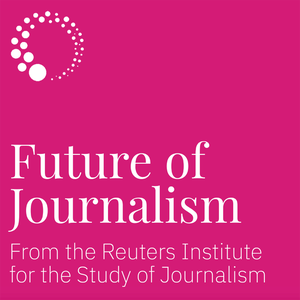 Reuters Institute for the Study of Journalism
Reuters Institute for the Study of Journalism
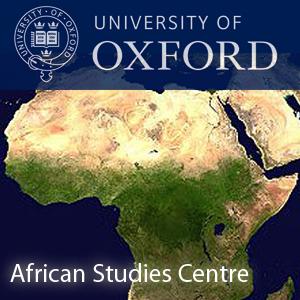 African Studies Centre
African Studies Centre
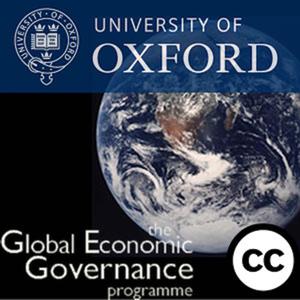 Global Economic Governance Programme
Global Economic Governance Programme
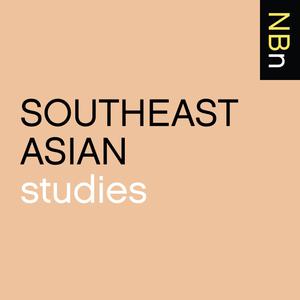 New Books in Southeast Asian Studies
New Books in Southeast Asian Studies
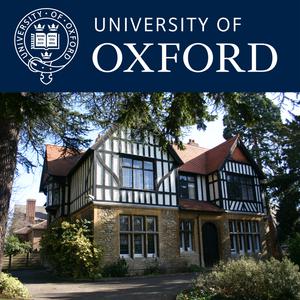 Middle East Centre
Middle East Centre